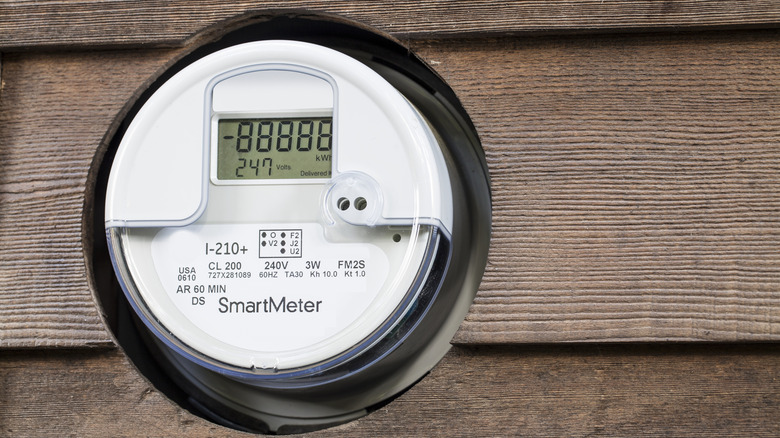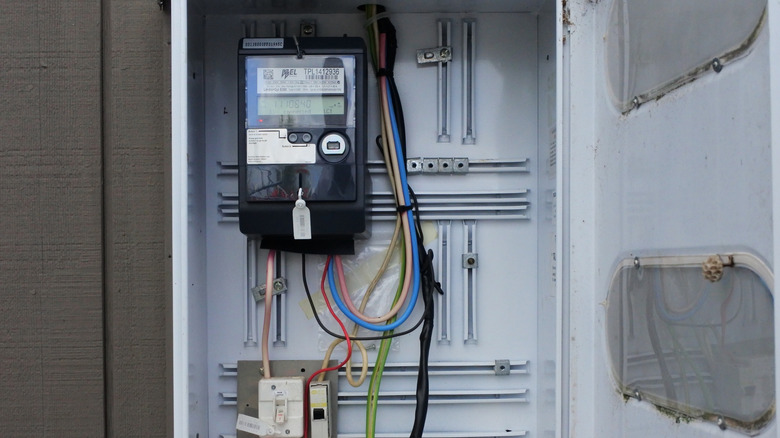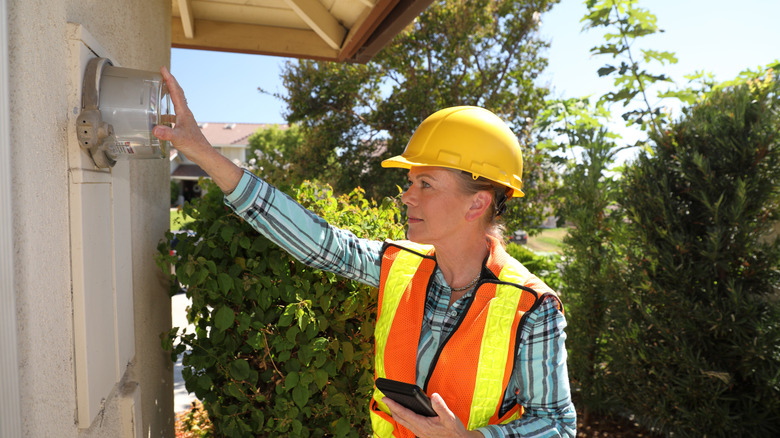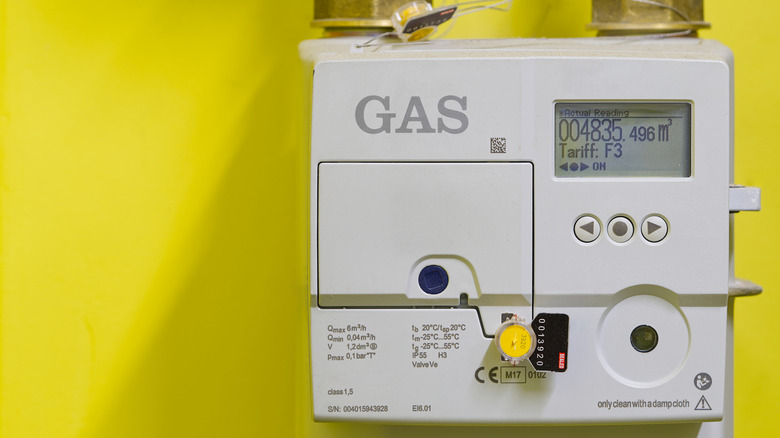Are Smart Meters Really Dangerous? Why You Don't Need To Worry
Most of us would never intentionally bring something unsafe into our homes. That's why we research new products before buying them. None of us wants to look back and think we exposed ourselves or our families to something harmful because we didn't do our homework ahead of time. However, a dilemma arises when we don't have a say in what gets installed in our homes, like when a utility company replaces an analog meter with a smart meter. The increasing use of smart meters across the U.S. has become concerning for many people because of reports that they emit radiation and could put their personal privacy at risk. While some states allow consumers to opt out of these smart meters, not all do, leaving some feeling like they've been signed up for a risk they never agreed to.
However, you may wonder if these fears are grounded in reality. According to a report by Berg Insight, smart meter penetration in the U.S. is projected to reach 94%. That means, even if you want to avoid smart meters, it'll be hard to do. The good news is that smart meters have been extensively studied, and there's little evidence to support the fears surrounding them. Instead, most consumers would probably be better off focusing on the common mistakes that are increasing their electric bill, such as running the heat or AC too much, or using outdated appliances that waste electricity. Still, with so much concern out there, it's worth asking — are smart meters really something to worry about?
What are smart meters?
Before we get into whether smart meters pose a risk to our health and privacy, it's important to understand what they are. Smart devices have become a way of life for many people, including those looking to automate their homes without breaking the bank. Just like many of us turn to smart devices to make our lives easier, utility companies use smart meters to make the job of tracking our energy usage easier. Instead of sending someone out to check our meters manually, with smart meters, that data is sent back to the utility company wirelessly, giving them real-time information on how much energy their customers are using.
Smart meters don't just benefit utility companies, they also help you to monitor your household's energy use and get a better understanding of where and when you're using the most electricity. How a smart meter works can change based on what type of energy it's measuring. For example, electricity meters use sensors to track how much electricity your home is using and for how long. It then uses that data to calculate your total energy use in kilowatt-hours, which is what you see on your electric bill.
On the other hand, smart meters for natural gas and water use built-in flow sensors to measure how much gas or water passes through the meter. From there, the smart meter can calculate your household's energy consumption by factoring in both the amount used and the energy content of the gas or water. On the surface, it seems harmless, but for some consumers, the way smart meters send their data is concerning because they use radio frequency (RF) signals similar to those used by cell phones and Wi-Fi. They also transmit detailed information about a household's energy usage, something some worry could affect their privacy.
Yes, smart meters emit radiation, but not at harmful levels
One of the main concerns consumers have about smart meters stems from worries about being exposed to the RF radiation they emit. While it's true that you might be exposed to some RF radiation if a smart meter is installed at your home, the amount will be negligible and not enough to harm you in any way. You're exposed to more RF radiation while using a cell phone than from a smart meter. According to a study by Honeywell (PDF), RF exposure from cell phones can be up to 10,000 times greater than that from smart meters. Even a Nintendo DS with Wi-Fi gives off more RF radiation than a smart meter.
Furthermore, the Federal Communications Commission enforces strict limits on the amount of RF radiation that electronic devices, including smart meters, are allowed to emit. Smart meters must meet these standards before they're approved for use. If that doesn't allay your fears, keep in mind that smart meters are usually set up outdoors, with walls in between you and the device, further reducing your exposure. According to the American Cancer Society, unlike ultraviolet light, X-rays, or gamma rays, the low-energy radiation that smart meters emit isn't enough to directly damage DNA.
The Federal Drug Administration hasn't found a link between low-level RF exposure from cell phones and cancer or other health issues — and smart meters give off far less RF than phones do. However, the International Agency for Research on Cancer (PDF) has classified RF radiation as "possibly carcinogenic to humans" based on limited evidence from one study on heavy cell phone use. It's important to note that this classification doesn't confirm a risk — it simply means more research is needed, and it doesn't specifically apply to smart meters.
Smart meters raise privacy concerns, but protections exist
Concerns about smart meter security aren't without merit. After all, there have always been questions about whether smart devices can be hacked and what measures we can take to prevent it from happening. When a utility company installs a smart meter on our property, we have little control over its security and how they protect our data, which some might find unsettling. However, it's important to know that in the U.S., there are safeguards in place to protect the privacy of the usage data our smart meters collect.
According to a fact sheet published by the Dakota Electric Association (PDF), when your smart meter transmits usage data to the utility company, it does so without using any information that would identify you. These companies must submit their data protection plans to state regulatory commissions, and they use the same methods as online banks and ATMs, including advanced encryption, to transmit usage information securely. You and authorized personnel from your utility company are the only parties with access to your smart meter data.
However, as we all know, even the most stringent data protection policies aren't always enough to keep bad actors from trying to gain unauthorized access to protected information. If a cybercriminal accessed this information, they could get an idea of when your habits and things like when you're likely to be away from home. Even though some risk is always present, the protections utility companies have in place make it relatively low.



